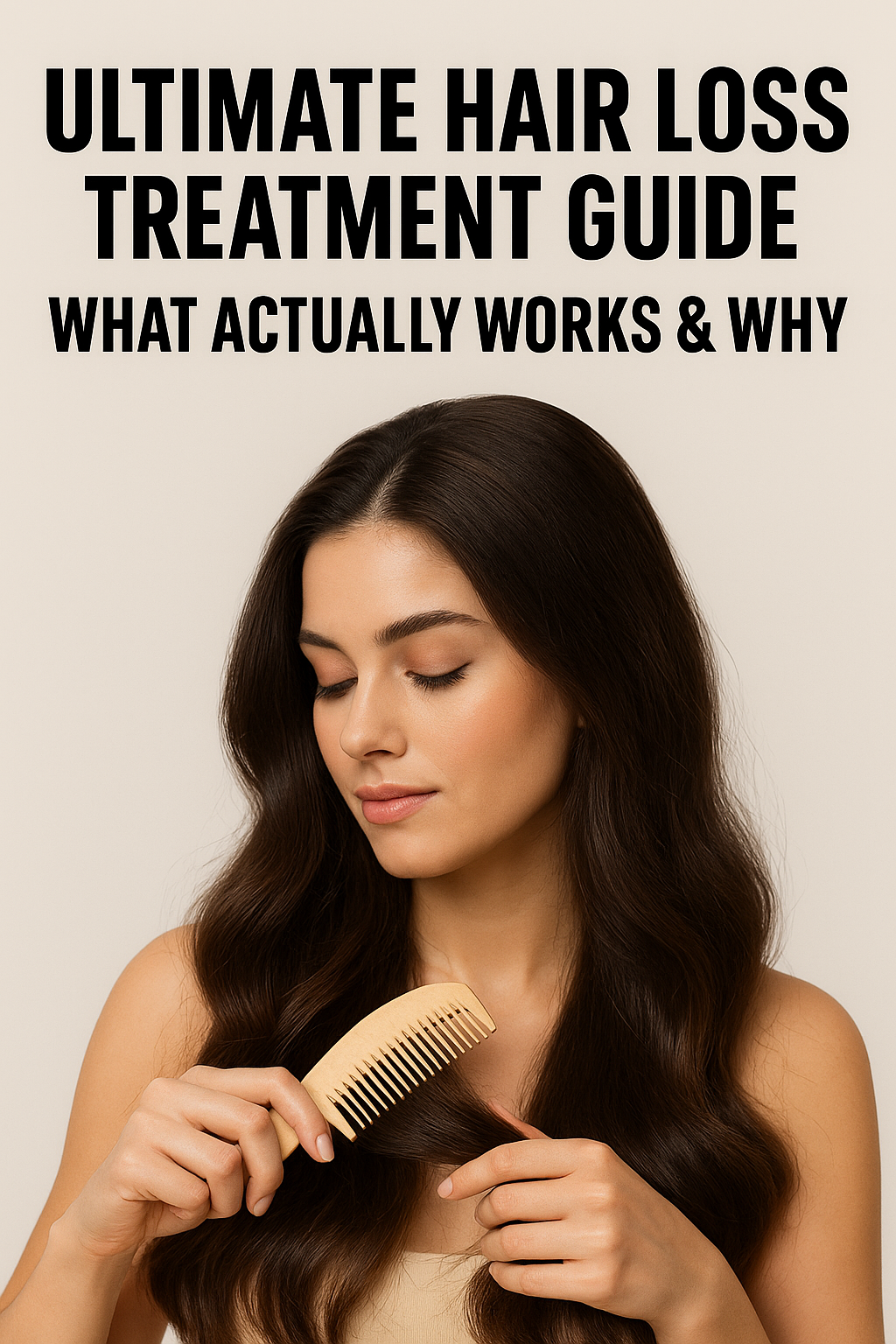
Ultimate Hair Loss Treatment Guide: What Actually Works & Why
Share
Key Takeaways:
-
Hair loss can result from stress, genetics, scalp conditions, and poor hair care routines.
-
This guide explores effective, science-backed treatments for hair loss, including medical therapies, natural solutions, and preventive scalp care.
-
Understand which approach suits your needs—whether you're managing dandruff, seeking moisturizing hair oils, or exploring hair loss therapy
Estimated Reading Time: 9 minutes
Table of Contents
1. Understanding the Causes of Hair Loss
2. Proven Medical Treatments for Hair Loss
3. Science-Backed Natural Therapies
4. The Link Between Dandruff, Scalp Health, and Hair Loss
5. Finding the Right Hair Loss Solution for You
6. Conclusion & Next Steps
Understanding the Causes of Hair Loss
Hair loss can be triggered by multiple factors, and recognizing the root cause is the first step in finding the right solution. Whether you're dealing with female pattern hair loss, noticing early signs of balding, or experiencing general thinning, it often comes down to:
- Genetic predisposition (androgenetic alopecia)
- Hormonal shifts, stress, and medical issues
- Scalp inflammation or conditions like dandruff
- Poor scalp hygiene and styling practices
Understanding these triggers helps narrow down which hair loss treatments are most effective for you.
Cleveland Clinic - Hair Loss Types
Proven Medical Treatments for Hair Loss
For individuals looking for established, medically supported treatments, there are several options that have been proven to slow or reverse hair loss:
- Minoxidil (Rogaine): A topical treatment that improves blood flow to hair follicles.
- Finasteride: An oral medication primarily used for male-pattern baldness.
- Platelet-Rich Plasma (PRP): Injections using your own blood to stimulate follicle activity.
- Hair Transplant Surgery: Recommended for advanced balding or receding hairlines.
If you're seeking help from a hair loss specialist, especially after trying over-the-counter remedies, they may recommend combining one or more of these approaches based on your scalp condition.
Mayo Clinic - Hair Loss Treatment
Science-Backed Natural Therapies
If your preference leans toward natural, holistic options, several therapies have shown great potential:
1. Scalp Massage
Regular scalp massage increases blood flow, reduces stress, and may strengthen the hair shaft. Devices like scalp massagers are often recommended as part of non-invasive hair loss therapy routines.
2. Red Light Therapy
Low-level laser therapy (LLLT) at wavelengths around 650nm has been shown to improve follicle activity and hair density without significant side effects.
3. Moisturizing Hair Oils
Using moisturizing hair oil treatments can support scalp health, reduce inflammation, and promote stronger hair:
- Castor oil: Improves circulation and conditions the scalp.
- Rosemary oil: Comparable to minoxidil in some clinical trials.
- Argan oil and jojoba oil: Add hydration and protect against oxidative stress.
🔗 The Power of Castor Oil for Thicker, Healthier Hair
Verywell Health - Best Hair Oils
The Link Between Dandruff, Scalp Health, and Hair Loss
Searches related to medicated anti-dandruff shampoo often reveal an underlying scalp issue that’s contributing to hair shedding. Chronic dandruff can:
- Clog follicles
- Cause itching and inflammation
- Lead to long-term follicle damage if untreated
To improve scalp health:
- Look for shampoos with ketoconazole, selenium sulfide, or zinc pyrithione.
- Alternate between medicated and moisturizing formulas.
- Avoid products with harsh sulfates or alcohols.
🔗 Why Scalp Health is the Secret to Hair Growth
Mayo Clinic - Dandruff Treatments
Finding the Right Hair Loss Solution for You
Here’s how to align your personal symptoms and goals with the best next step:
- Experiencing gradual thinning or receding? → Start with topical minoxidil or red light therapy.
- Dealing with flaking and itching? → Try a medicated dandruff shampoo and scalp oiling routine.
- Hair feels dry and brittle? → Integrate moisturizing hair oils like argan or castor.
- Concerned about family history of hair loss? → Monitor your hairline and consult a hair loss specialist early.
By recognizing your specific hair concerns—whether that’s female pattern hair loss, excessive shedding, or persistent dandruff—you can take targeted action.
Conclusion & Next Steps
Hair loss doesn’t have to feel confusing. Once you understand the causes, treatment options, and your specific hair needs, managing it becomes much more achievable.
Whether you begin with professional treatment, incorporate natural hair loss therapies, or improve your scalp routine with oils and medicated shampoos—consistency and care matter most.
🔗 Hair Growth Hacks That Actually Work in 2025
Explore the path that works for you—and know you're not alone in the journey.
